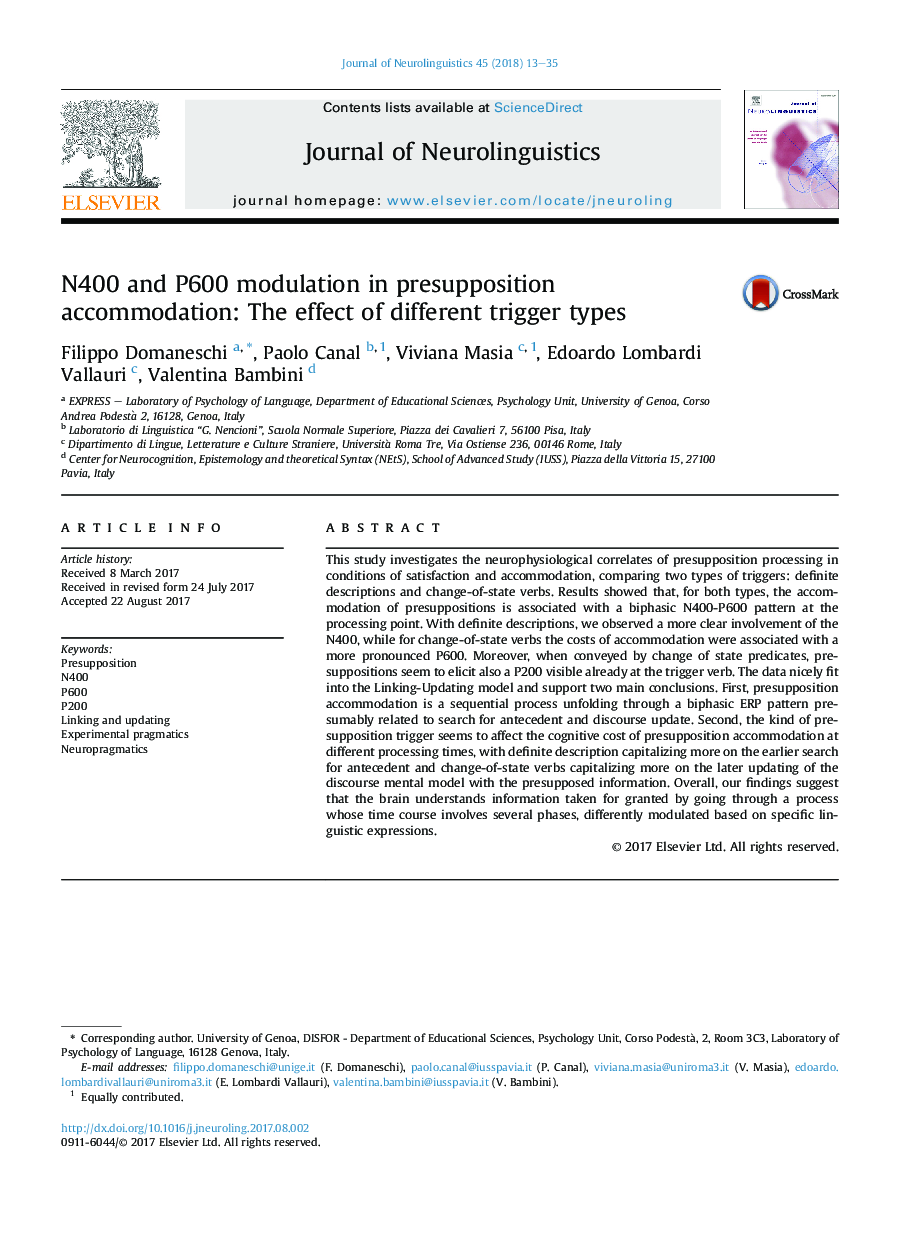| کد مقاله | کد نشریه | سال انتشار | مقاله انگلیسی | نسخه تمام متن |
|---|---|---|---|---|
| 5039190 | 1473163 | 2018 | 23 صفحه PDF | دانلود رایگان |
- Presupposition accommodation elicited a biphasic ERP response.
- The N400Â +Â P600 is compatible with linking and updating mechanisms.
- The cognitive load unfolds differently depending on the presupposition trigger.
- The N400 is more prominent for definite descriptions.
- The P600 is more prominent for change-of-state verbs.
This study investigates the neurophysiological correlates of presupposition processing in conditions of satisfaction and accommodation, comparing two types of triggers: definite descriptions and change-of-state verbs. Results showed that, for both types, the accommodation of presuppositions is associated with a biphasic N400-P600 pattern at the processing point. With definite descriptions, we observed a more clear involvement of the N400, while for change-of-state verbs the costs of accommodation were associated with a more pronounced P600. Moreover, when conveyed by change of state predicates, presuppositions seem to elicit also a P200 visible already at the trigger verb. The data nicely fit into the Linking-Updating model and support two main conclusions. First, presupposition accommodation is a sequential process unfolding through a biphasic ERP pattern presumably related to search for antecedent and discourse update. Second, the kind of presupposition trigger seems to affect the cognitive cost of presupposition accommodation at different processing times, with definite description capitalizing more on the earlier search for antecedent and change-of-state verbs capitalizing more on the later updating of the discourse mental model with the presupposed information. Overall, our findings suggest that the brain understands information taken for granted by going through a process whose time course involves several phases, differently modulated based on specific linguistic expressions.
Journal: Journal of Neurolinguistics - Volume 45, February 2018, Pages 13-35
